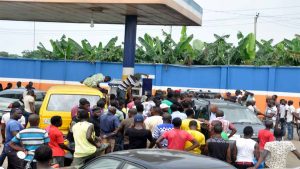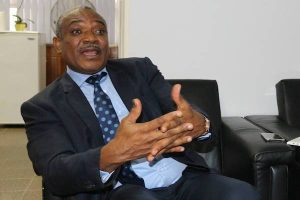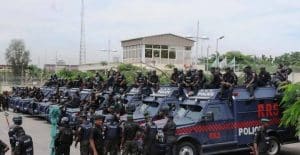Fuel shortages are reappearing in Abuja and neighbouring states like Niger, Nasarawa, and Kogi as filling stations shut down due to fears over a planned nationwide protest.
Oil marketers are expressing concerns about potential disruptions, leading to a halt in fuel sales at several retail outlets, including those run by the Nigerian National Petroleum Company Limited on the Kubwa-Zuba expressway.
According to the Punch, similar closures were seen in parts of Niger and Nasarawa states, as well as in Lokoja, the capital of Kogi State.
This has resulted in long queues at the few stations that continue to dispense fuel, such as AYM Shafa in Dei-Dei, Abuja, and the NNPC in Zuba, Niger State.
In Lagos State, many stations closed on Friday, sparking fears of an impending scarcity. Limited stations that remained open charged up to ₦800 per litre of petrol.
Oil marketers attributed the closures to both a lack of fuel supply and apprehension about the nationwide protest.
According to the Punch, in Ogun State, motorists faced long lines as they scrambled for petrol amidst fears of a looming shortage.
In the Magboro and Ibafo areas along the Lagos-Ibadan Expressway, chaotic scenes unfolded as vehicles queued for over 100 meters at Quest Filling Station, where only one of three petrol pumps was operational.
Saheed, a commercial bus driver heading to Ibadan, expressed frustration after waiting for over an hour.
“I have been here for more than one hour. I didn’t know I would meet such a long queue. Although one of our drivers mentioned a smaller queue earlier, I didn’t anticipate this.
“My passengers are already complaining, but there’s nothing I can do. I can’t use my urine to drive them to Ibadan. We just have to wait for our turn,” he lamented
At NIPCO Filling Station in Magboro, diesel was priced at ₦1,200 per litre, while petrol cost ₦675 per litre. Although four out of five petrol pumps were functioning, the demand far exceeded the supply.
Mohammed Shuaibu, Secretary of the Independent Petroleum Marketers Association of Nigeria, Abuja-Suleja, explained that some stations may lack fuel due to supply issues, but many marketers are also preemptively closing to prevent losses amid protest fears.
Shuaibu said, “Some of them may not have products to dispense due to unavailability.
“However, many marketers are worried about the proposed protest and are already taking measures to prevent losses. Closing shops is one of such measure and this, of course, is going to cause queues in such locations because the number of stations selling petrol would be reduced.
“I am in Lokoja now, and many stations are not dispensing petrol. This is not a good thing because we only recovered from the fuel queues recently in major cities across the country, though that situation was due to a drop in supply from NNPC.”
Meanwhile, the Minister of State for Petroleum Resources (Oil), Heineken Lokpobiri, has appealed for calm and urged Nigerians to avoid joining the proposed protest.
In a statement issued by his media aide, Nneamaka Okafor, Lokpobiri emphasized the need for constructive engagement with the government.
Lokpobiri urged Nigerians to seek constructive solutions to their frustrations and emphasized President Bola Tinubu’s commitment to economic revitalization. He called for unity and patience as the government works to address the nation’s challenges.
The minister warned against groups that might exploit the protest for malicious purposes and emphasized the importance of dialogue over actions that could destabilize the country.
“While protesting is your democratic right, consider the broader implications on our national stability and progress,” he advised.
Lokpobiri reassured citizens of President Tinubu’s dedication to addressing their concerns, urging support for government initiatives to achieve national progress. “Let us work together to achieve the progress we all desire. Avoid actions that could jeopardize our collective future,” he concluded.
The post Fuel Shortages Reemerge In Abuja, Other States Amid Protest Concerns appeared first on Naija News.








